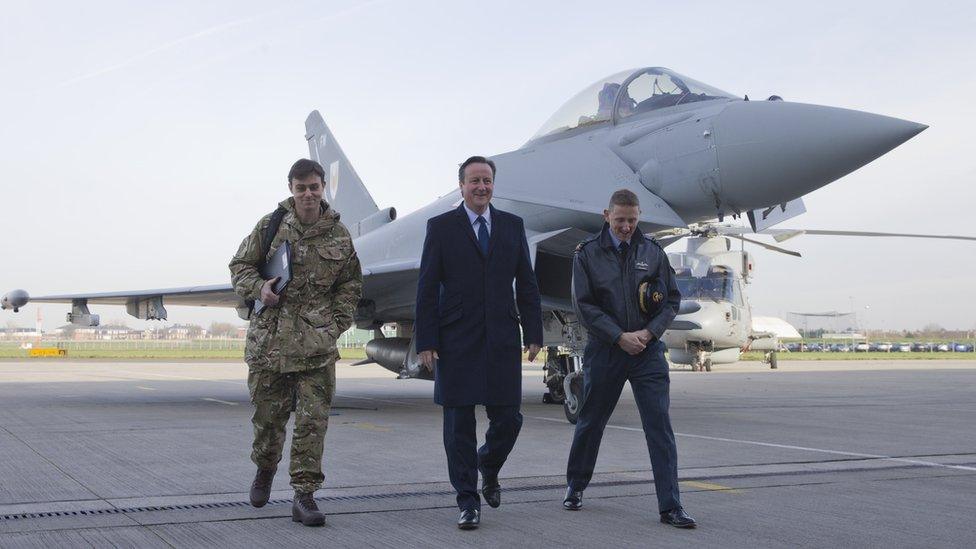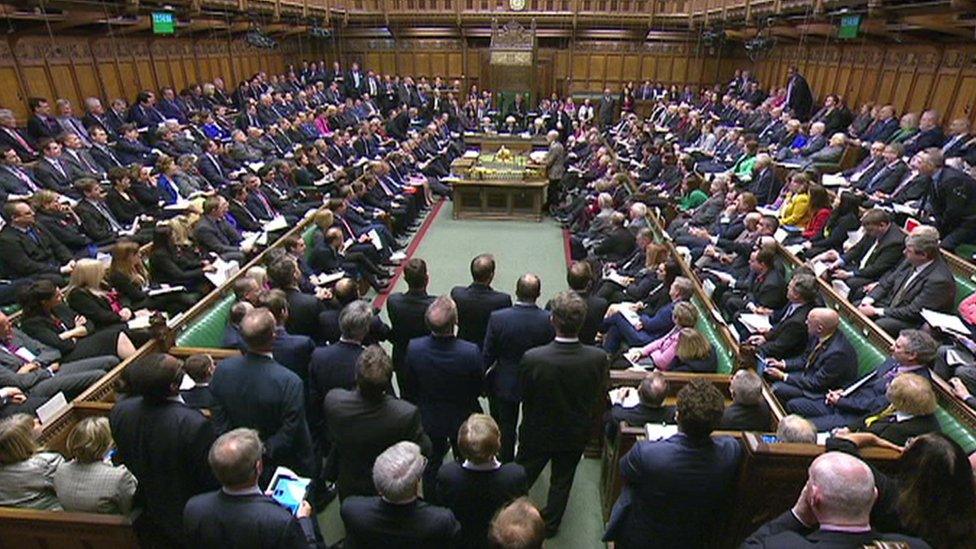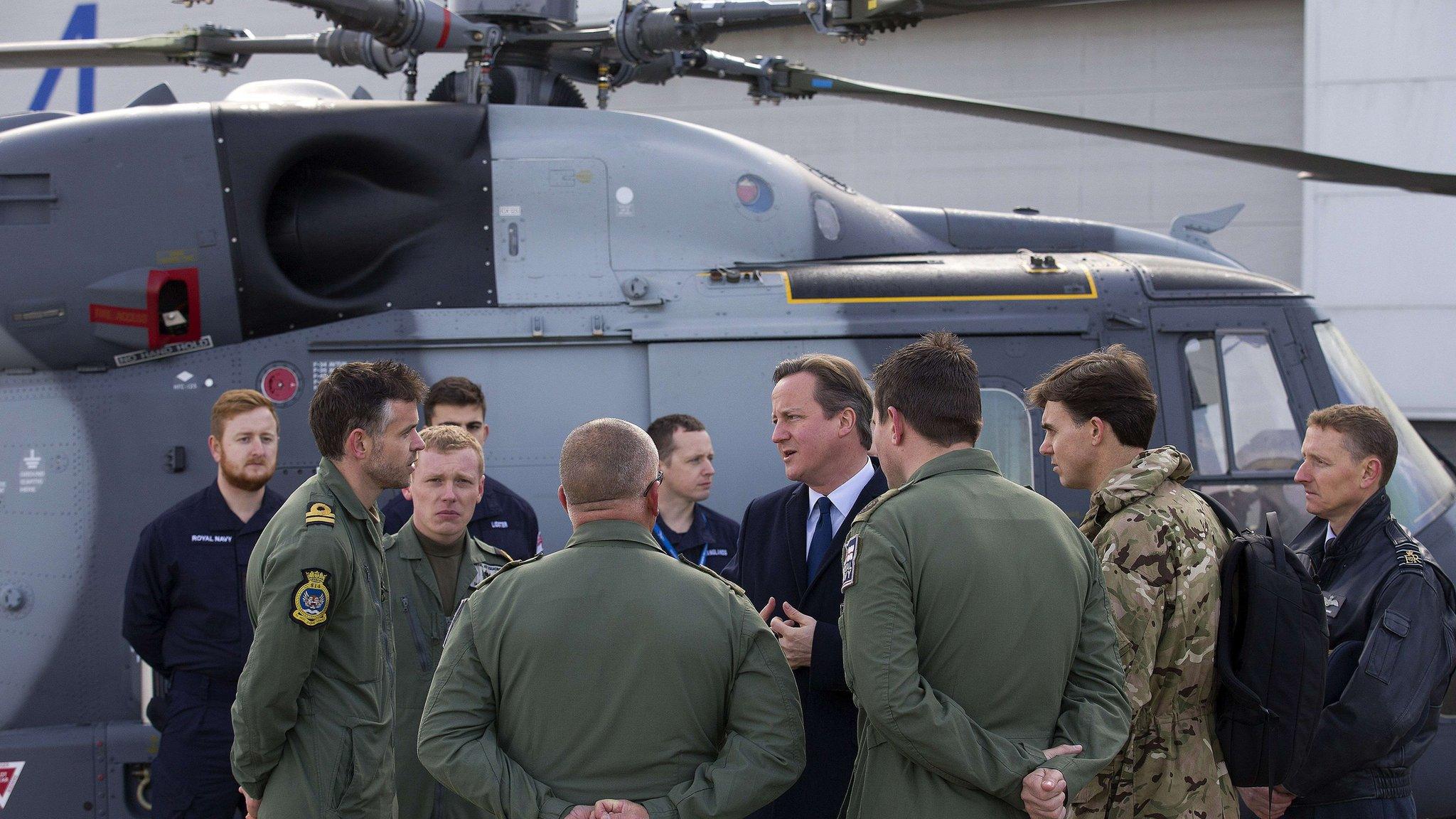Defence review heralds 'a new assertiveness'
- Published

Prime Minister David Cameron visited RAF Northolt ahead of the defence review publication
If a picture really does tell a thousand words, the smashing and slicing up of RAF Nimrods in an industrial shredder after the last defence review said one thing loud and clear - that Britain's defence capability was on the wane, and perhaps, its military influence along with it.
Now we arrive at the next big-ticket Strategic Defence and Security Review the prime minister is delivering today, and the tone could hardly be more different.
Defence Secretary Michael Fallon and his boss are outlining what they consider to be a new and improved defence capability, not just to protect Britain more effectively but helping to defeat the so-called Islamic State and, crucially, "projecting our values around the world".
And there's added edge to their arguments today, making their case just ten days after the terrorist outrage in Paris.
'Greater mass'
There are mind-boggling sums of money involved - the government is promising to spend £178bn of taxpayers' money on new kit for the military in the coming decade: 10,000 troops in two "strike brigades" that will be able to respond more flexibly and quickly to threats around the world; many more jets, "bigger and stronger" defence forces as the defence secretary describes them.
They might be busy, very busy. One Cabinet minister told me we will see a "new assertiveness across the globe".
There will be more deployments of our troops they said, more interventions, more boots on the ground, not to wage war, but to help stabilise fragile states, particularly in Africa.

Ministers are increasingly confident they have the Commons numbers needed to sanction air strikes in Syria
Troops "in greater mass", will be able to be deployed around the world. This is a new and different phase where it's more likely that British soldiers might be sent to intervene in the way they currently are on the ground in Nigeria, helping the fight against Boko Haram, or as peacekeepers in Southern Sudan, potentially in Libya too.
What gives all of this a greater urgency, a greater political edge is an increasing confidence among ministers that they will have the votes in the Commons to sanction British bombing in Syria.
David Cameron is expected to make his case to MPs on Thursday, with a vote likely in the coming weeks. But the government's renewed vigour on defence, and its accelerating plan for Syrian strikes, both require caveats.
Big questions
On defence, there is more money, there is a new determination, but there is still a squeeze inside the defence budget. The SNP for example claim Scotland has been "betrayed" over cuts to frigates that are built on the Clyde.
Those new strike brigades won't be at full readiness until 2025. And the extra £12bn that's going to the MoD of course comes at a cost for other departments.
Every penny that goes there has to come from somewhere else, and the depth of the cuts elsewhere will be revealed by George Osborne on Wednesday. Welfare, the police, and support for business are all likely to be hit.
And although political sentiment is shifting in the government's favour on Syria, there are very big questions that it might be impossible for the prime minister to answer in a week.
Hardest perhaps, what ground forces exist in Syria to take and hold land where IS is destroyed? Billions of pounds of new British military kit can't answer that.
- Published23 November 2015
